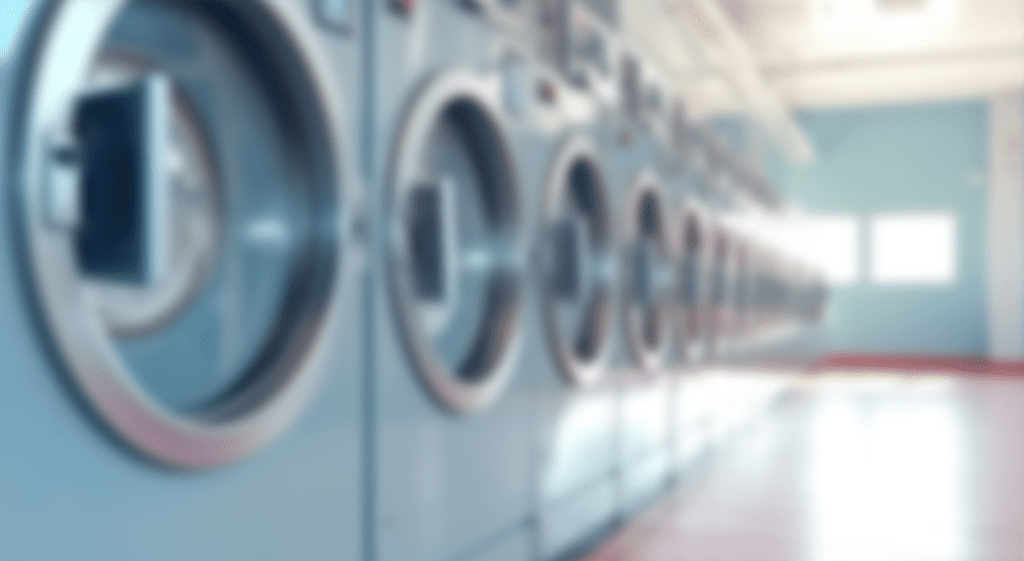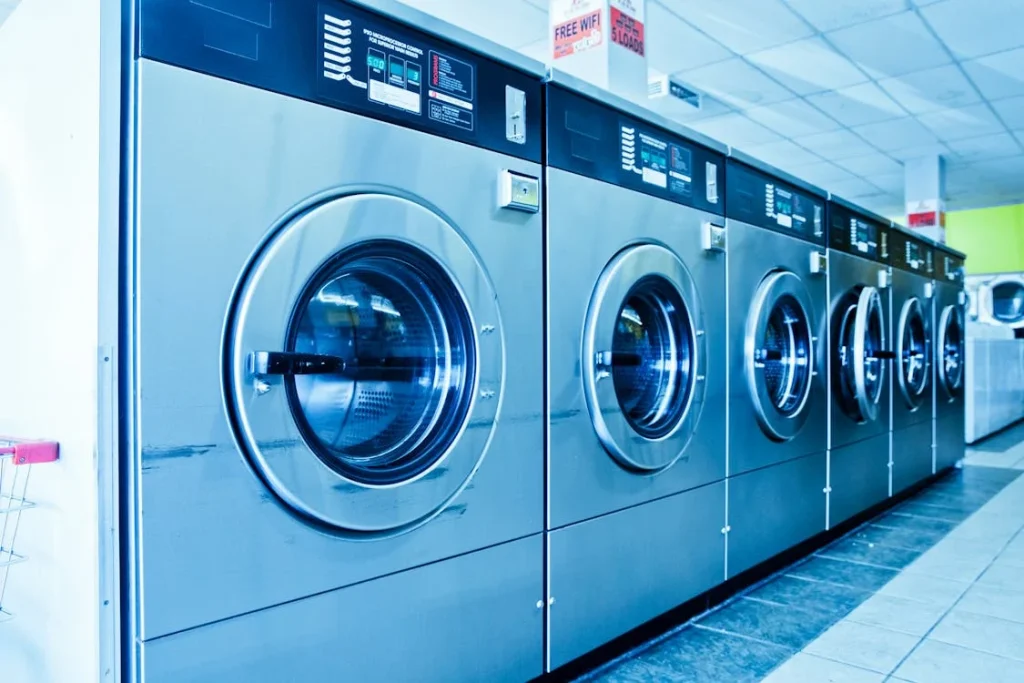Choosing the right industrial washer dryer is a crucial decision for any business that handles large volumes of laundry. It’s an investment that impacts efficiency, operating costs, and the overall quality of your laundry. Think of it like choosing a workhorse – you need something reliable, powerful, and suited to the specific demands of your operation. This comprehensive guide will walk you through the key factors to consider when selecting the perfect industrial washer dryer for your business.
Tabla de contenidos
- 1. Understanding Your Laundry Needs
- 2. Types of Industrial Washers and Dryers
- 3. Key Features to Consider
- 4. Matching Washer and Dryer Capacity
- 5. Installation and Space Requirements
- 6. Budget and Cost Analysis
- 7. Choosing the Right Supplier
- 8. Making the Final Decision
- 9. Maintaining Your Industrial Washer Dryer
- 10. FAQs
- 11. Conclusion
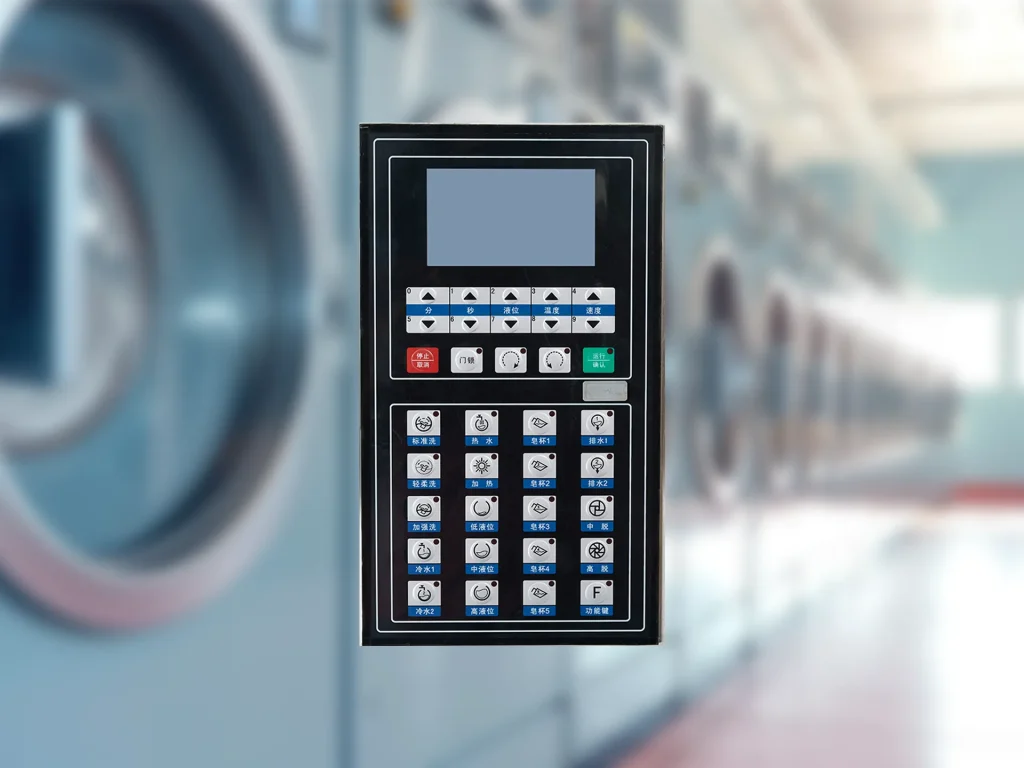
1. Understanding Your Laundry Needs
Before diving into the specifics of washers and dryers, it’s essential to thoroughly understand your business’s laundry needs. This involves a few key steps.
1.1. Defining Your Laundry Volume
First, estimate your daily or weekly laundry volume. Are you dealing with hundreds of pounds of linens, or a more moderate amount? This will heavily influence the capacity you need. A small bed and breakfast will have vastly different needs than a large hospital laundry. Understanding your volume helps prevent purchasing equipment that’s too small or unnecessarily large and expensive.
1.2. Identifying Fabric Types and Soil Levels
Next, consider the types of fabrics you’ll be washing and the level of soiling. Are you dealing with delicate linens, heavy-duty work uniforms, or a mix of both? Different fabrics require different wash cycles and temperatures, and heavily soiled items may need pre-treatment or specialized wash programs. This is crucial for ensuring the longevity of your textiles and the effectiveness of your cleaning process.
1.3. Considering Future Growth
Finally, think about your business’s future growth. Will your laundry volume likely increase in the coming years? It’s wise to invest in equipment that can handle potential future demands, rather than having to upgrade prematurely. Planning ahead can save you significant time and money in the long run.
2. Types of Industrial Washers and Dryers
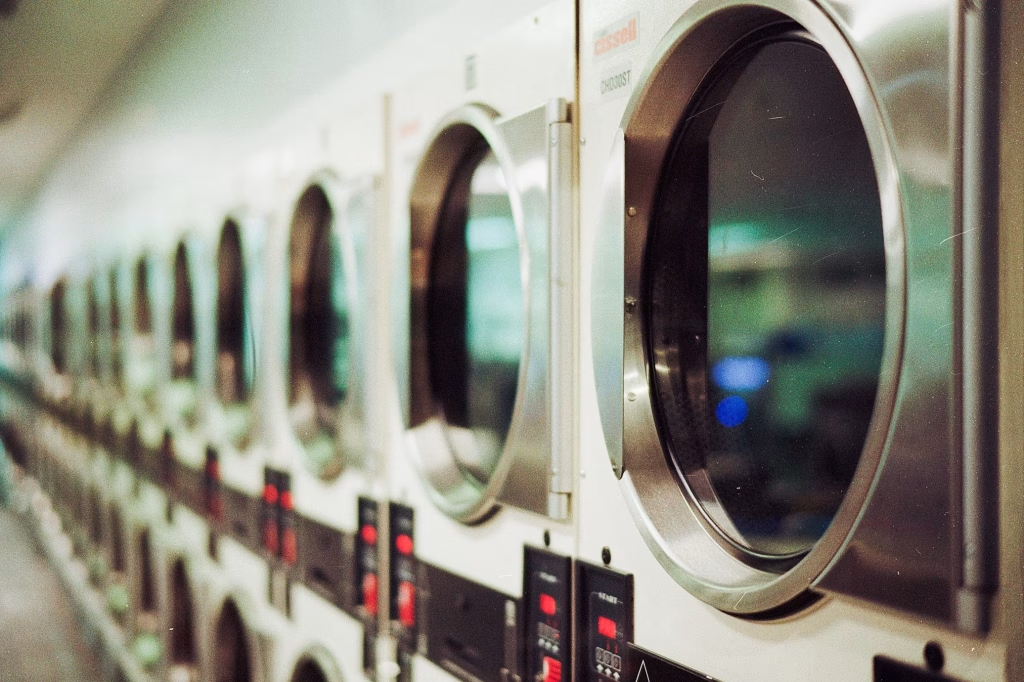
Now that you have a grasp of your laundry needs, let’s explore the different types of industrial washers and dryers available.
2.1. Washer Types: Front-Load vs. Top-Load
Industrial washers typically come in front-load and top-load configurations. Front-load washers are generally more energy-efficient and use less water, while top-load washers offer easier loading and unloading. Consider the ergonomics of your workspace and the specific needs of your laundry when making this decision.
2.2. Dryer Types: Tumbler Dryers vs. Extractors
Dryers also come in various types, including tumbler dryers and extractors. Tumbler dryers are the most common type, using hot air to dry clothes. Extractors, on the other hand, spin clothes at high speeds to remove excess water, significantly reducing drying time. The choice depends on the volume of laundry and the desired drying speed.
2.3. Specialized Washers and Dryers
For specific industries, specialized washers and dryers may be necessary. For instance, healthcare facilities may require washers with sanitization capabilities, while dry cleaners may need specialized dry cleaning machines. If your business has unique laundry requirements, research the specialized equipment available.
3. Key Features to Consider
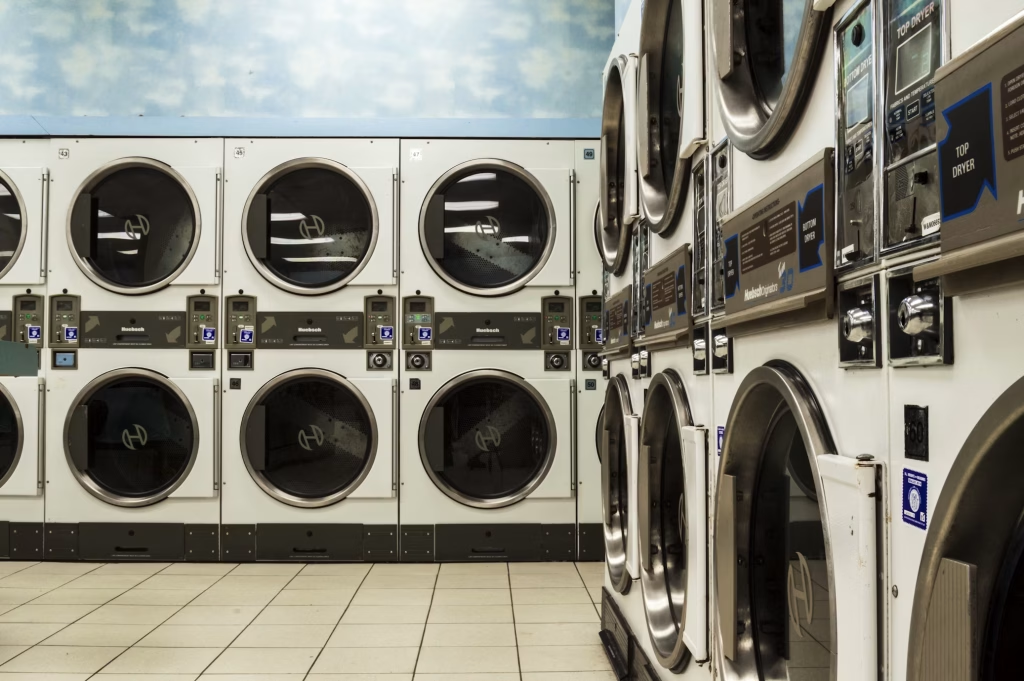
Beyond the basic types, several key features differentiate industrial washers and dryers.
3.1. Capacity and Drum Size
Capacity is a primary consideration. Larger drum sizes allow for washing and drying more laundry at once, improving efficiency. However, larger machines also require more space and may consume more energy. Finding the right balance is key.
3.2. Energy Efficiency and Water Consumption
Energy efficiency and water consumption are crucial for minimizing operating costs and environmental impact. Look for machines with high Energy Star ratings and water-saving features. This is not only good for the planet but also for your bottom line.
3.3. Cycle Times and Programmability
Cycle times and programmability are important for optimizing workflow. Machines with shorter cycle times and customizable programs allow for greater flexibility and faster turnaround. This is particularly important for businesses with tight deadlines or high laundry volume.
3.4. Durability and Maintenance Requirements
Industrial washers and dryers are a significant investment, so durability is paramount. Look for machines built with high-quality materials and robust components. Also, consider the maintenance requirements and availability of spare parts. A well-maintained machine will last longer and save you money on repairs in the long run.
4. Matching Washer and Dryer Capacity
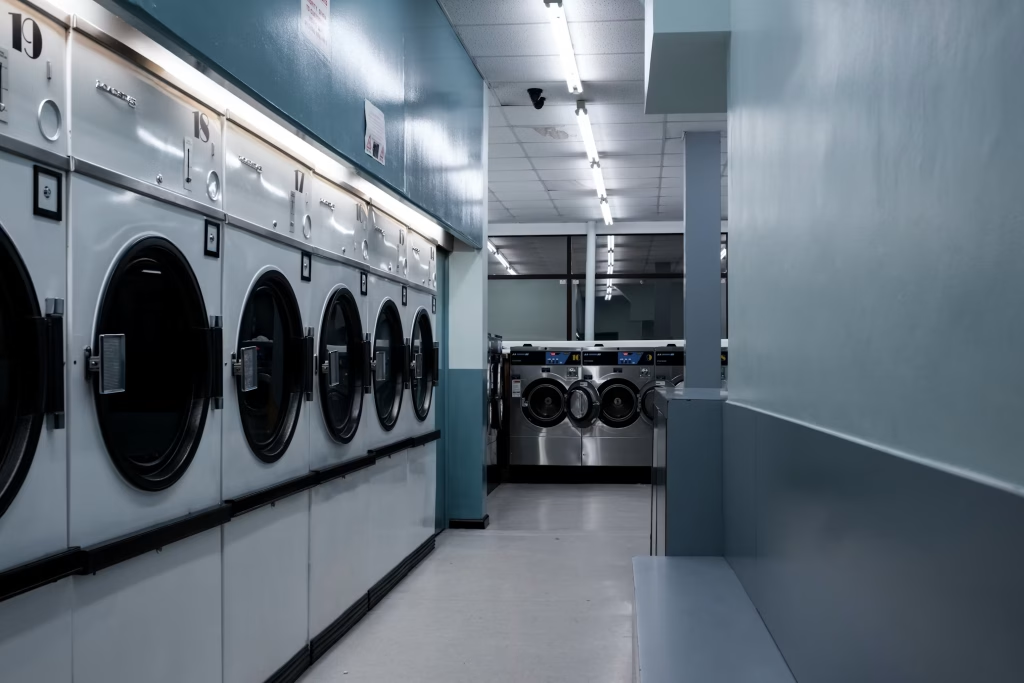
It’s essential to match the capacity of your washers and dryers. If your dryer capacity is significantly smaller than your washer capacity, you’ll end up with a bottleneck in your laundry process. Aim for a balanced system to maximize efficiency.
5. Installation and Space Requirements
Before purchasing any equipment, carefully assess your installation and space requirements.
5.1. Measuring Your Space
Measure the available space in your laundry area to ensure the chosen machines will fit comfortably. Consider not only the footprint of the machines but also the clearance needed for loading, unloading, and maintenance.
5.2. Utility Connections (Water, Gas, Electricity)
Check the necessary utility connections (water, gas, and electricity) to ensure your facility is properly equipped. You may need to consult with a plumber or electrician to make any necessary modifications.
6. Budget and Cost Analysis
Of course, budget is a major factor in any purchasing decision.
6.1. Initial Investment vs. Long-Term Operating Costs
Consider both the initial investment and the long-term operating costs. A less expensive machine may have higher energy and water consumption, resulting in higher operating costs over time. A more expensive, energy-efficient machine may be a better investment in the long run.
6.2. Leasing vs. Buying
Explore both leasing and buying options. Leasing may be a good option for businesses with limited capital, while buying may be more cost-effective in the long term.
7. Choosing the Right Supplier
Choosing the right supplier is just as important as choosing the right equipment. https://spinwashing.com/industrial-laundry/ offers a wide range of industrial laundry solutions.
7.1. Reputation and Experience
Look for a supplier with a good reputation and extensive experience in the industrial laundry industry. A reputable supplier will offer high-quality equipment, competitive pricing, and excellent customer service.
7.2. After-Sales Service and Support
Ensure the supplier provides adequate after-sales service and support, including installation, training, and maintenance. A reliable supplier will be there to help you with any issues that may arise when using your industrial washer dryer.
8. Making the Final Decision
After careful consideration of all these factors, you’ll be ready to make your final decision. Don’t rush the process. Take your time, compare different options, and choose the industrial washer dryer that best meets the specific needs of your business.
9. Maintaining Your Industrial Washer Dryer
Proper maintenance is crucial for extending the lifespan of your industrial washer and dryer.
9.1. Preventative Maintenance
Implement a regular preventative maintenance schedule. This includes cleaning filters, checking hoses, and lubricating moving parts. Regular maintenance will help prevent costly repairs and downtime.
9.2. Troubleshooting Common Issues
Familiarize yourself with common issues and troubleshooting steps. This will allow you to address minor problems quickly and efficiently. For more complex issues, consult with a qualified technician.
This comprehensive guide has equipped you with the knowledge to make an informed decision. Remember, the right industrial washer dryer is an investment in the efficiency and success of your business.
10. FAQs
What is the average lifespan of an industrial washer dryer?
With proper maintenance, an industrial washer dryer can typically last 8-12 years, sometimes even longer.
How often should I perform preventative maintenance?
We recommend performing preventative maintenance at least quarterly, or more frequently depending on your laundry volume and the manufacturer’s recommendations.
What are some signs that my industrial washer dryer needs repair?
Signs that your machine needs repair include unusual noises, leaks, longer than usual cycle times, or error codes displayed on the industrial washer dryer machine. If you notice any of these signs, contact a qualified technician immediately.
Can I wash different types of fabrics together in an industrial washer?
While some fabrics can be washed together, it’s generally best to separate fabrics by type and soil level to ensure optimal cleaning and prevent damage to delicate items for the industrial washer dryer.
What is the importance of water temperature in industrial washing?
Water temperature plays a critical role in the effectiveness of the wash cycle. Hot water is generally used for heavily soiled items, while warm or cold water is suitable for more delicate fabrics and lightly soiled items. Choosing the correct water temperature is essential for achieving the best cleaning results for your industrial washer dryer.
11. Conclusion
Choosing the right industrial washer and dryer can feel like navigating a complex maze, but by understanding your needs, exploring the different types available, and considering the key features, you can make an informed decision that will benefit your business for years to come. Remember that it’s not just about the initial cost, but also the long-term operating expenses, durability, and the support you receive from your supplier.
If you’re still feeling overwhelmed or have specific questions related to your business’s needs, don’t hesitate to reach out to us. We at https://spinwashing.com/ are here to help you navigate the process and find the perfect industrial laundry solution for your business. Contact us today for a consultation!
Here are some other articles that we think might interest you:
Environmental Impact of Industrial Laundry

